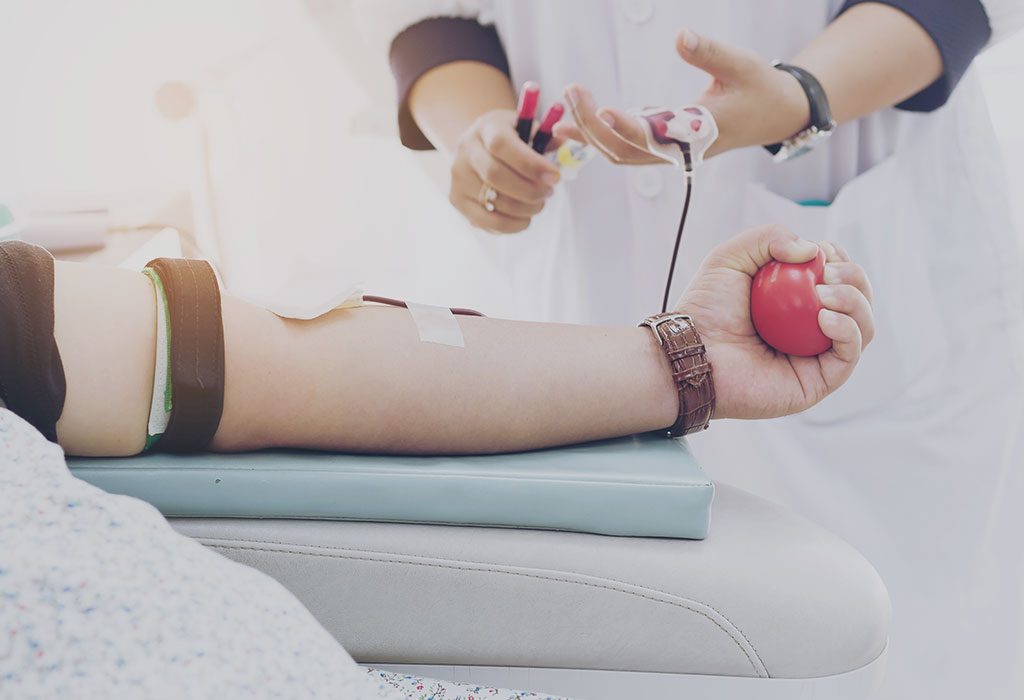Ever wondered if you can donate blood while nourishing your little one? Breastfeeding mothers can donate blood, but it's not a simple yes or no. Its a nuanced situation that requires careful consideration of both the mothers and the babys health.
Navigating the world of breastfeeding is often filled with questions and conflicting advice. When the topic of blood donation arises, the waters become even murkier. Concerns about milk supply, iron levels, and overall well-being naturally take center stage. This article aims to clarify the guidelines, risks, and precautions associated with blood donation while breastfeeding, offering a comprehensive guide to help you make an informed decision. Whether you're a seasoned donor or considering it for the first time, understanding the facts is crucial for ensuring the health and safety of both you and your baby.
| Topic | Information |
|---|---|
| Breastfeeding and Blood Donation | Overview of the topic |
| General Guidelines | Recommendations from organizations like the American Red Cross and WHO. |
| Risks and Considerations | Potential impacts on milk supply, iron levels, and maternal health. |
| Precautions | Steps to take before and after donation to ensure safety. |
| Alternative Donation Methods | Options like cord blood donation for those who cannot donate blood directly. |
| Additional Resources | Links to relevant articles and organizations. |
| Reference Website | American Red Cross |
The question "Can you donate blood while breastfeeding?" isn't a straightforward one. Various factors come into play, making it essential to understand the nuances involved. The American Red Cross, for instance, generally approves blood donation for nursing mothers after six weeks postpartum. However, a crucial caveat exists: after giving birth, it's advisable to wait at least nine months from the delivery date to allow your body ample time to replenish its iron stores. This waiting period helps ensure that the mother's health isn't compromised during the donation process.
- Paul Sweet Oval Your Guide To Unhs Indoor Track More
- Jordyn Woods Style Evolution From Nyfw To Fur Coats Beyond
Adding to the complexity are donation restrictions specifically related to breastfeeding. These restrictions are put in place to safeguard both the mother and the infant. The World Health Organization (WHO), for example, adopts a more cautious stance on blood donation during breastfeeding. Their guidelines emphasize prioritizing the health needs of both mother and baby. They recommend a deferral period of at least nine months after childbirth and until three months after the baby is significantly weaned, meaning the infant receives most of their nutrition from solid foods. This extended period allows the mother's body to recover and stabilize before undergoing the demands of blood donation.
Understanding the potential impact on milk supply is another vital consideration. Human milk is composed of approximately 87% water. A standard blood donation extracts about 16 ounces of blood from the body. This fluid loss can temporarily affect milk production, potentially leading to a decrease in supply. To mitigate this risk, it's essential to stay adequately hydrated before, during, and after donating blood. Some mothers find it helpful to pump and store milk before donating to maintain a consistent supply for their babies.
Fatigue is another common side effect of blood donation. Donating blood requires energy, and the recovery process can leave individuals feeling tired. For breastfeeding mothers, who are already navigating the demands of motherhood, this fatigue can be particularly challenging. Prioritizing rest before and after donating blood is essential to minimize potential exhaustion. Adequate sleep, a balanced diet, and stress management techniques can aid in a quicker recovery.
- Kaalan Walker Superfly Actor Sentenced To Life In Prison
- Unlock The Past Vintage Heart Shaped Locks A Timeless Charm
Breastfeeding mothers may also wonder about donating plasma. Plasma donation involves extracting plasma, the liquid portion of the blood, while returning the red blood cells and other components to the donor. While the answer to "Can you donate plasma while breastfeeding?" is generally positive, potential side effects exist. Plasma donation can potentially lower electrolyte levels in the body, which may lead to dehydration. According to the WHO, donating plasma while breastfeeding might cause side effects that can impact a mother's milk supply. Therefore, careful consideration and consultation with a healthcare provider are necessary.
Several factors can lead to blood appearing in breast milk, a phenomenon that can be alarming for new mothers. In many cases, the presence of blood is due to cracked nipples, a common issue during the early days of breastfeeding. When nipples crack or become sore, small amounts of blood can mix with the milk. Waiting for the nipples to heal is often the best solution when only a small amount of blood is present. Blood in your breast milk is rarely due to a serious medical problem.
Another potential cause of blood in breast milk is broken capillaries. When capillaries in the breast break, the blood can leak into the milk ducts. While this can cause streaks of blood in the milk, it is typically not harmful to the baby. Mastitis, a breast infection, can also lead to blood in the milk. Mastitis can occur due to missed feeds or improper latching, leading to inflammation and sometimes blood in the milk. Despite the presence of blood, it's generally safe to continue breastfeeding unless otherwise advised by a healthcare provider.
Understanding the interplay between breastfeeding and blood donation involves recognizing the key ingredients shared by both breast milk and blood. Iron, a vital mineral, is crucial for both processes. Blood loss during donation can deplete iron levels in the mother, potentially impacting her overall health and energy levels. Since breast milk also contains iron, maintaining adequate iron stores is essential for both the mother and the baby. This is why healthcare professionals often recommend waiting a sufficient period after childbirth before donating blood, allowing the body to replenish its iron reserves.
The decision to donate blood while breastfeeding is a personal one, best made in consultation with a healthcare provider. Open communication with your doctor ensures that all relevant factors are considered, including your medical history, breastfeeding status, and individual circumstances. They can provide tailored advice based on your specific needs and help you weigh the potential risks and benefits. Remember, your health and your baby's well-being are paramount.
For those who are unable to donate blood due to breastfeeding or other reasons, alternative ways to contribute to the medical community exist. Cord blood donation, for instance, offers a unique opportunity to help others. Cord blood, the blood remaining in the placenta and umbilical cord after birth, is rich in stem cells. These stem cells are incredibly valuable for developing treatments for cancer patients and other medical conditions. Donating cord blood is a simple, painless procedure that can have a significant impact on the lives of others.
It's essential to stay informed and seek accurate information from reputable sources. The American Red Cross, the World Health Organization, and healthcare professionals specializing in breastfeeding can provide valuable guidance and support. They can help you navigate the complexities of blood donation while breastfeeding and make informed decisions that prioritize your health and your baby's well-being. Remember, being well-informed is the first step towards making a responsible and beneficial choice.
Conflicting opinions and information surrounding blood donation while breastfeeding can be overwhelming. To navigate this landscape effectively, it's essential to rely on evidence-based guidelines and expert advice. The American Red Cross and the World Health Organization (WHO) offer valuable recommendations, but their approaches differ slightly. Understanding these differences and consulting with a healthcare provider can help you determine the best course of action for your individual circumstances. Prioritizing your health and your baby's well-being should always be the guiding principle.
For many blood donors, temporary deferrals are common. Low iron levels, low blood pressure, or certain medications can disqualify individuals from donating for a specific period. These deferrals are often temporary, allowing donors to resume donating once the underlying issue is resolved. If you've been turned away from giving blood in the past, don't be discouraged. Revisit the requirements and try again when you meet the eligibility criteria. Your contribution can make a life-saving difference.
Certain medications can also affect your eligibility to donate blood. A handful of drugs have special significance in blood donation, requiring a waiting period after the last dose before you can donate. Consult with your doctor or a blood donation center to determine if any medications you are taking may impact your ability to donate. Transparency about your medication history is crucial for ensuring the safety of both you and the blood recipients.
Maintaining adequate hydration is paramount when donating blood, especially while breastfeeding. Human milk is 87% water, and a blood donation takes 16 ounces of blood from the body. This can easily lead to dehydration, potentially decreasing breast milk output. To prevent this, increase your fluid intake in the days leading up to your donation and continue to hydrate well afterward. Drinking plenty of water, juice, and electrolyte-rich beverages can help maintain milk supply and prevent fatigue.
After donating blood, it's essential to take care of yourself. Ensure you get enough rest, eat a balanced diet rich in iron, and stay hydrated. These measures will help your body recover quickly and minimize any potential side effects. Pay attention to your body's signals and don't hesitate to seek medical advice if you experience any concerning symptoms.
In some cases, blood in breast milk is due to more complex issues. When they break, the blood from them can leak into milk. Mastitis is a breast infection that can happen when breastfeeding. This could be because of missed feeds or your baby not latching on properly. It can cause streaks of blood in your milk. While it can be scary when you first come across blood in your breast milk, it's typically safe to keep breastfeeding. Blood in your breast milk is rarely due to a serious medical problem. Waiting for blood to go away is the best solution when only a small amount appears during the first days of breastfeeding.
While many nursing mothers can safely donate blood, there are some potential concerns to keep in mind. Donating blood can temporarily affect milk supply. If you notice a drop, consider pumping and storing milk before donating. Blood donation can cause fatigue. Ensure you get enough rest before and after the donation. Following childbirth, the deferral period is at least 9 months (as for pregnancy) and until 3 months after your baby is significantly weaned (i.e.
Ultimately, the decision to donate blood while breastfeeding requires careful consideration, consultation with healthcare professionals, and adherence to established guidelines. By prioritizing your health and your baby's well-being, you can make informed choices that benefit both of you while potentially contributing to the well-being of others. Breastfeeding is such an individual journey.
- Jessica Schneider Cnn Career Net Worth Family Life Revealed
- Prevent Car Static Shock Tips Tricks You Need To Know


